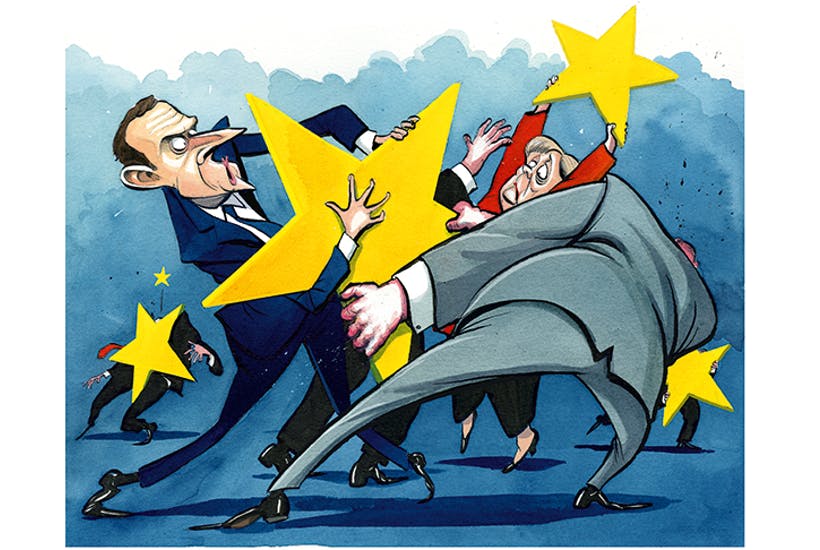A new interior minister. A new agriculture and culture minister. There wasn’t, despite some speculation, a new prime minister, but there will be lots of new fresh faces around the cabinet table. France’s dynamic young president Emmanuel Macron has finally re-launched his government after a wave of resignations in a bid to kick-start phase two of his term of office, restore some order to an increasingly chaotic administration, and, probably not co-incidentally, to rescue his tumbling poll ratings.
The trouble is, his real problem is not the team around him. Nor is it his style, or resistance to his reforms, although both might cause controversy. In fact, it is becoming painfully obvious that France’s real problem is the euro. Macron has been making all the right reforms, and has injected plenty of pro-business energy into the country. But a dysfunctional single currency is still relentlessly sucking demand out of the economy – and so long as that is true, the French economy is going to keep on failing.
For someone who swept to power last year amid a wave of centrist, reforming optimism, Macron has certainly appeared to struggle over the last few months. The latest blow was the resignation of his interior minister Gerard Collomb, an early ally who departed complaining that the president was out of touch and arrogant and losing his grip on the administration. That followed the departure of his environment minister who stalked out of the government in a huff half way through a radio interview, swiftly followed by a sports minister. The numbers heading for the ‘Sortie’ make even Theresa May’s government look relatively stable.
Against that backdrop, it is probably no great surprise that Macron’s approval ratings have fallen from 60 per cent-plus to below 30 per cent, lower even than his hapless predecessor and one-time mentor François Hollande during his spell in office. In response, Macron has re-launched his government, with a raft of re-shuffled ministers announced today. And yet the real problem is not a few personality clashes. It is the economy.
By any reasonable measure, Macron has been remarkably successful so far at delivering on his promise of reforming the French economy. Sure, you can argue that he should have done more, and done it faster, but he has made more progress than any French leader in decades in shaking up a model that had become burdensomely expensive, restrictive and out-of-date. There have been significant labour market reforms, the corporation tax rate is coming down from 33 per cent to 25 per cent, and the latest budget plan includes 26 billion euros of tax cuts for both workers and companies along with pension reforms and cuts to the public sector payroll. On top of that, there has been an energetic campaign to woo business, and boost entrepreneurship. Okay, he is not exactly Ronald Reagan. But Macron has achieved more than his predecessors have managed, and the street protests have so far not managed to stop him.
The problem is not his policies. It is the results. The French economy remains stuck in the doldrums. Growth is flagging, eking out a mere 0.2 per cent expansion in the first two quarters of this year (far lower than Britain despite the turmoil around Brexit). Consumer spending is falling, unemployment has barely dropped, and the trade deficit keeps widening. It is just as dismal as it has been for the last decade.
Sure, perhaps the reforms will have some impact eventually. And yet the real problem is the euro, which has sucked demand out of the economy and suffocated industry with an uncompetitive exchange rate. Under the hapless Hollande, it was just about possible to maintain that France’s problem was a lack of reform and an anti-business government. But under Macron, it is becoming clear it’s actually the currency – even if he would be the last person to admit it.






Comments